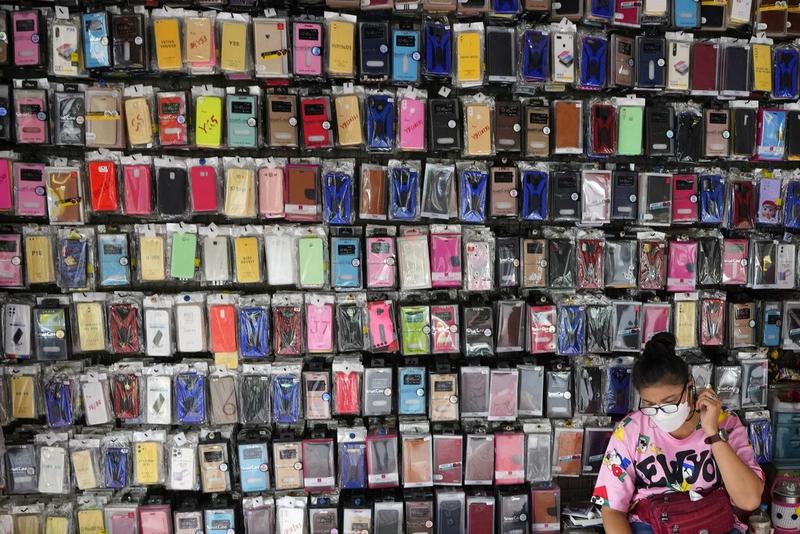With tourism on the ropes, long-term visas can pep up economy, experts say
 A mobile phone case vendor wearing a protective mask to help curb the spread of the coronavirus waits for customers in Bangkok, Thailand, Sept 14, 2021. (SAKCHAI LALIT / AP)
A mobile phone case vendor wearing a protective mask to help curb the spread of the coronavirus waits for customers in Bangkok, Thailand, Sept 14, 2021. (SAKCHAI LALIT / AP)
Moves by Thailand to offer long-term visas to wealthy foreigners as part of its economic recovery plans have been endorsed by figures in the hospitality industry and academia.
They say a focus on richer foreigners will help spur investment flows and boost an economy hit hard by the coronavirus-induced shutdown of the vital tourism industry.
"The easiest way, if you are undercapitalized right now, is to attract foreign investment," said Bill Barnett, a Phuket-based Asian hospitality expert.
"You are fishing where the fish are," said Barnett, managing director of consultancy C9 Hotelworks, referring to the Thai government's attempts to attract investors and wealthy new residents.
The main reason for the government's move to ease its immigration policies is the need to stimulate the economy, he said.
Thailand on Tuesday approved an economic stimulus and investment promotion package that will encourage long-term stays of what officials call "high potential" foreigners to help revive the economy, the National News Bureau of Thailand reported.
Among the measures, Thailand is offering a 10-year visa for not only approved special visitors but also their spouses and children, a government spokesman told the media.
Other benefits include automatic work permits, exemption from foreign income tax, same income tax rates as Thai citizens, and the right to land ownership. Holders will also be exempted from the need to report to immigration authorities every 90 days.
Five-year target
The goal is to attract 1 million wealthy foreigners within five years, generating about 1 trillion baht (US$30 billion) in spending, 800 billion baht in investment and 270 billion baht in tax income.
Supa Pengpid, a professor at the ASEAN Institute for Health Development at Mahidol University in Thailand, said she supports the measures to attract foreign residents. "We will live in a new world... we can't wait for an unlimited time until we can say that the COVID-19 cases have reached zero," she told China Daily. ASEAN stands for the Association of Southeast Asian Nations, a regional bloc that includes Thailand.
Thailand reported 13,897 new COVID-19 cases on Thursday, bringing the national tally to 1,434,237, according to its health ministry. Driven by the highly transmissible Delta variant, 98 percent of the infections have been recorded in the latest wave since April.
Noting that health risks are a concern when it comes to international travelers, Supa said the government should remain cautious as it tries to bring back foreigners during the pandemic.
Barnett said the program is well-segmented, as it targets people from different groups that will help specific sectors of the economy, including luxury real estate, medical services, digitalization and exports.
Four groups are eligible for the new visa type: rich, so-called global citizens, foreign retirees, remote workers who intend to work in Thailand and highly skilled professionals.
But Barnett said the goal of having 1 million foreign residents will be difficult to achieve.
Thailand launched a long-term residency program called Thailand Elite Card in 2003 that grants foreigners a five-year multiple-entry visa.
The Elite visa membership reached only 10,363 during the first three quarters of fiscal 2020, according to Nikkei Asia, citing data from the Thailand Privilege Card, the state-owned company under the Tourism Authority of Thailand that issues the "elite visas".
"People still want to see what it is going to be done," said Barnett, noting Thailand will also face competition from other Southeast Asian countries that are working to attract the rich and chase the digital nomads, people who telecommute and live nomadic lifestyles.


